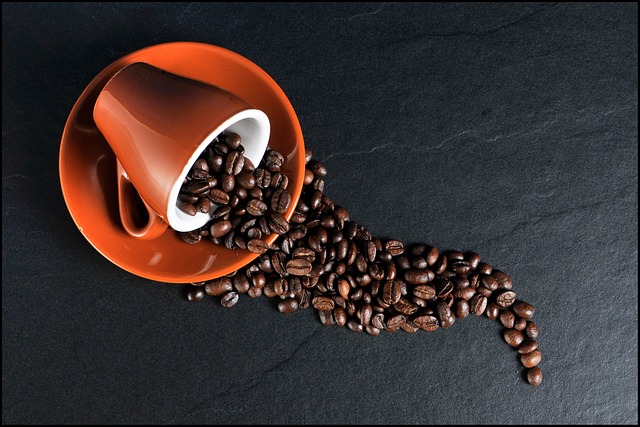Are you tired of trying to increase your workout performance and muscle gain, only to be left feeling bloated and uncomfortable? If so, you may have wondered whether creatine, the popular supplement used by athletes and fitness enthusiasts, could be causing your digestive issues. In this article, we will explore the potential connection between creatine and gas, and provide you with strategies to manage any digestive effects that may arise. So, let’s dig in and uncover the truth about this widely-used supplement and its impact on your gut health.
1. Understanding Creatine: An Essential Athletic Supplement for Performance and Muscle Growth
Understanding Creatine is crucial for athletes looking to enhance their performance and achieve optimal muscle growth. This essential athletic supplement has been extensively studied and proven to provide numerous benefits. Here’s what you need to know about Creatine:
1. Improved strength and power: Creatine is renowned for its ability to enhance strength and power output during intense physical activities. By increasing phosphocreatine stores in your muscles, it helps to replenish ATP (adenosine triphosphate) levels more rapidly. This results in a greater capacity to perform explosive movements, such as lifting heavier weights or sprinting faster.
2. Increased muscle mass: If your goal is to pack on lean muscle mass, Creatine can be a game-changer. It promotes muscle protein synthesis by providing the necessary energy for cells to build new proteins. This, coupled with its ability to pull water into the muscle cells, creates a more favorable environment for muscle growth and volumization. As a result, you may experience greater gains in muscle size and improved overall body composition.
2. Unveiling the Digestive Effects: Can Creatine Really Cause Gas?
The digestive effects of creatine have been a topic of debate among athletes and fitness enthusiasts. While creatine is known for its ability to enhance performance and muscle growth, some individuals have reported experiencing gas and bloating after taking creatine supplements. So, let’s dig deeper and explore whether these claims hold any truth.
Possible Causes of Gas and Bloating:
- Incomplete digestion: Creatine requires a considerable amount of water to be properly digested. When there isn’t enough water in the digestive system, it can lead to incomplete digestion and the production of gas.
- Pre-existing digestive conditions: Some individuals may already have digestive conditions, such as irritable bowel syndrome (IBS), that make them more susceptible to digestive issues when taking creatine.
- Quality of creatine: The source and quality of creatine supplements can vary. Poorly manufactured products may contain impurities that can contribute to digestive discomfort.
Tips to Minimize Digestive Effects:
- Stay hydrated: Ensuring adequate water intake can help prevent any potential digestive issues associated with creatine.
- Start with smaller doses: Some individuals may need to start with a smaller dosage and gradually increase it to allow their body to adjust.
- Choose reputable brands: Opt for creatine supplements from trusted brands that prioritize quality and are backed by good manufacturing practices.
3. Gut Troubles: The Science Behind Creatine’s Impact on Digestion
When it comes to gut troubles, understanding how creatine impacts digestion is essential. Creatine is a naturally occurring compound that plays a crucial role in energy production, particularly in muscle cells. While it is widely recognized for its benefits in enhancing athletic performance and muscle growth, it is essential to consider its impact on the digestive system as well.
Creatine supplementation has been associated with several gastrointestinal symptoms, although not everyone experiences them. It’s important to note that these effects can vary from person to person and may depend on factors such as dosage, individual sensitivity, and overall digestive health. Some common gut troubles associated with creatine include:
- Bloating: Some individuals may experience bloating as a side effect of creatine supplementation. This can lead to a feeling of fullness and discomfort in the abdominal area.
- Diarrhea: In certain cases, creatine can cause loose stools or diarrhea. This is more likely to occur when consuming higher doses or during the initial stages of supplementation.
- Cramping: Muscle cramping, particularly in the abdominal region, has been reported by some individuals using creatine. This can result in temporary discomfort and pain.
To manage these gut troubles, it is recommended to start with a lower dosage of creatine and gradually increase it over time. Additionally, ensuring proper hydration and consuming creatine with food can help minimize digestive issues. If gut troubles persist or become severe, it’s advisable to consult a healthcare professional for personalized guidance.
4. Practical Tips for Managing Digestive Issues While Taking Creatine
If you’re experiencing digestive issues while taking creatine, don’t worry! There are several practical tips you can follow to help manage those discomforts and make your creatine supplementation experience a more pleasant one.
1. Stay hydrated: Proper hydration is crucial when taking creatine. Not only does it promote overall health, but it can also help alleviate digestive issues that may occur. Be sure to drink enough water throughout the day, especially before and after your creatine intake.
2. Take creatine with food: Consuming creatine with a meal or snack can help reduce the likelihood of digestive problems. Food acts as a buffer and can ease the absorption of creatine in your system. Aim to have your creatine supplement alongside a balanced meal or a light snack.
3. Start with a lower dosage: If you’re new to creatine or struggling with digestive discomfort, consider starting with a lower dosage. By gradually increasing the amount over time, you allow your body to adjust and minimize any potential digestive disturbances.
4. Choose a high-quality product: Opt for a reputable brand when selecting a creatine supplement. Look for products that have been tested for purity and quality. This way, you can ensure you’re getting a reliable and well-tolerated form of creatine.
5. Be consistent: Consistency is key when it comes to managing digestive issues while taking creatine. Stick to a regular dosing schedule and give your body time to adapt. A consistent routine can help minimize any gastrointestinal discomfort and maximize the benefits of creatine supplementation.
5. Balancing Act: Finding the Right Creatine Dosage for Your Body
When it comes to taking creatine, finding the right dosage for your unique body is crucial. It’s important to remember that everyone’s body is different, so what might work for one person may not work for another. The key is to start with a low dosage and gradually increase it as needed.
To determine the proper creatine dosage for your body, consider the following factors:
- Weight: The amount of creatine needed can vary based on your weight. A general guideline is to consume around 0.03 grams of creatine per kilogram of body weight.
- Activity level: If you’re engaged in intense workouts or high-intensity activities, you may require a higher dosage of creatine to support your increased energy needs.
- Goals: Are you looking to build muscle or simply increase your athletic performance? Depending on your goals, your creatine dosage might differ.
Remember, it’s important to stay hydrated when taking creatine. Drinking enough water throughout the day helps your body absorb and utilize the creatine more effectively. Additionally, be sure to follow the recommended dosage instructions provided by your healthcare professional or the creatine product you’re using. By finding the right balance and dosage, you can maximize the benefits of creatine supplementation without any unnecessary risks or side effects.
6. Incorporating Smart Dietary Changes: Alleviating Gas Associated with Creatine
To minimize the discomfort of gas that may sometimes arise when supplementing with creatine, incorporating smart dietary changes can make a significant difference. Here are some simple yet effective tips to alleviate gas associated with creatine intake:
1. Stay hydrated: Drinking an adequate amount of water throughout the day is crucial when taking creatine. It helps prevent dehydration, which can contribute to digestive issues, including gas. Aim for at least 8 glasses of water per day.
2. Increase fiber intake gradually: Fiber plays a key role in keeping your digestive system healthy. However, a sudden increase in fiber consumption can cause gas. Instead, slowly introduce high-fiber foods like fruits, vegetables, and whole grains into your diet to allow your body to adjust and minimize the chances of excess gas production.
3. Monitor your intake of gas-producing foods: Some foods are known to cause gas in certain individuals due to their high fermentable content. Foods such as beans, lentils, broccoli, cabbage, and onions fall into this category. Pay attention to how your body responds to these foods and limit intake if necessary.
4. Chew your food thoroughly: Properly chewing your food aids in digestion by breaking it down into smaller pieces that are easier to process. This can reduce the likelihood of gas production during digestion.
Remember, everyone’s body is unique, so it may take some trial and error to find the dietary adjustments that work best for you. By incorporating these smart changes into your diet, you can alleviate gas associated with creatine and enjoy the benefits of this popular supplement without unnecessary discomfort.
7. Busting Myths: Separating Fact from Fiction Regarding Creatine and Gas
Creatine is a popular supplement among athletes and bodybuilders, but it has also caught the attention of many myths and misconceptions. Let’s separate fact from fiction when it comes to creatine and any associated gas-related concerns.
1. Fact: Creatine does not directly cause gas
Contrary to popular belief, creatine itself does not cause gas. Gas is often a result of the fermentation of various foods in the digestive system. However, it is important to note that some creatine supplements may contain added ingredients that could potentially cause gastrointestinal discomfort. To avoid this issue, opt for pure creatine monohydrate, which is generally well-tolerated and less likely to cause such side effects.
2. Fiction: Creatine causes bloating
Another myth surrounding creatine is that it causes bloating. The truth is that creatine can actually lead to cellular hydration, which may cause muscles to appear fuller. This temporary effect is often perceived as bloating, but it is simply the result of increased water content within the muscles themselves. It is essential to differentiate between bloating and the desired effect of increased muscle fullness when evaluating the impact of creatine supplementation.
8. Enjoying the Benefits: Achieving Optimal Performance Without Gas Discomfort
Gas discomfort can often be a bothersome side effect of a healthy diet or certain medical conditions. However, with a few simple changes to your lifestyle and eating habits, you can achieve optimal performance without the discomfort of gas.
Here are some tips to help you enjoy the benefits of a healthy and active lifestyle without the unpleasantness of gas:
- Slow down when you eat: Eating too quickly can cause you to swallow air, resulting in excessive gas. Take smaller bites, chew your food thoroughly, and savor each mouthful.
- Avoid certain foods: Some foods are known to cause gas, such as beans, lentils, broccoli, cabbage, onions, and carbonated drinks. While these foods are nutritious, they may cause discomfort for some people. Consider limiting your intake or finding alternatives that work better for your digestive system.
- Stay hydrated: Drinking plenty of water can help prevent constipation, a common cause of gas. Aim for at least eight glasses of water a day to keep your digestive system functioning smoothly.
- Include probiotics in your diet: Probiotics are beneficial bacteria that can help improve digestion and reduce gas. Yogurt, kefir, sauerkraut, and kimchi are excellent sources of probiotics. Consider incorporating these into your meals for a healthy gut.
By incorporating these simple tips into your routine, you can achieve optimal performance without gas discomfort. Remember, everyone’s digestive system is unique, so it may take some trial and error to find what works best for you. Don’t be afraid to experiment and listen to your body. With a little effort, you’ll be able to enjoy the benefits of a healthier lifestyle without the discomfort of gas.
Frequently Asked Questions
Q: Can Creatine Cause Gas?
A: Yes, it is possible for creatine to cause gas and other digestive effects.
Q: What is creatine, and why is it used?
A: Creatine is a natural compound found in our muscles, and it plays a crucial role in providing energy for physical activities. It is commonly used by athletes and gym-goers to enhance their performance and build muscle mass.
Q: How does creatine cause gas?
A: When you consume creatine, your digestive system needs to break it down. This breakdown process produces gas as a byproduct, leading to bloating, flatulence, or even an upset stomach in some cases.
Q: Can everyone experience digestive effects from taking creatine?
A: While not everyone experiences digestive effects, it is fairly common among those who take creatine supplements. Each person’s body might react differently, so it’s important to be aware of the possibility.
Q: What are other potential digestive effects of creatine?
A: Apart from gas, other digestive effects may include diarrhea, stomach discomfort, or feeling nauseous. These effects can vary in intensity from person to person.
Q: How can I manage digestive effects caused by creatine?
A: There are a few strategies you can try to minimize these effects. Firstly, consider starting with a lower dosage and gradually increasing it to allow your body to adjust. Taking creatine with meals can also help. Additionally, staying well-hydrated and maintaining a balanced diet high in fiber can aid in digestion.
Q: Are there any alternatives to creatine that don’t cause digestive effects?
A: Some individuals may opt for alternative supplements like creatine HCL or liquid creatine, as they are believed to have fewer digestive side effects. However, it’s essential to conduct thorough research and consult a healthcare professional before making any changes to your supplement regimen.
Q: Is it normal to experience gas when taking creatine or should I be concerned?
A: While experiencing gas when taking creatine is normal for some people, if the symptoms are severe or persistent, it’s advisable to consult with a healthcare professional. They can provide personalized advice and ensure there are no underlying health issues.
Q: Can I continue taking creatine despite the digestive effects?
A: Yes, many individuals do continue taking creatine despite the digestive effects because the benefits often outweigh the temporary discomfort. However, it’s always crucial to listen to your body and make an informed decision based on your specific circumstances.
Q: Should I stop taking creatine if I experience severe digestive effects?
A: If you experience severe digestive effects that persist or worsen over time, it is advisable to consult a healthcare professional. They can assess your situation and provide guidance on whether to continue or discontinue creatine use.
Key Takeaways
In conclusion, while creatine is a popular supplement among athletes and fitness enthusiasts, it’s important to be aware of potential digestive effects, namely the possibility of experiencing gas. This can occur due to various factors such as improper dosage, inadequate hydration, or individual differences in gut sensitivity. However, with a few simple strategies, you can effectively manage these digestive issues. Remember to start with a low dosage and gradually increase it, ensuring you stay well-hydrated throughout the day. Incorporating fiber-rich foods into your diet and opting for easily digestible forms of creatine can also help minimize gas. If you experience persistent discomfort or severe symptoms, it’s advisable to consult a healthcare professional for further guidance. By being mindful of your digestive health while taking creatine, you can continue to enjoy its potential benefits on muscle strength and overall athletic performance.










